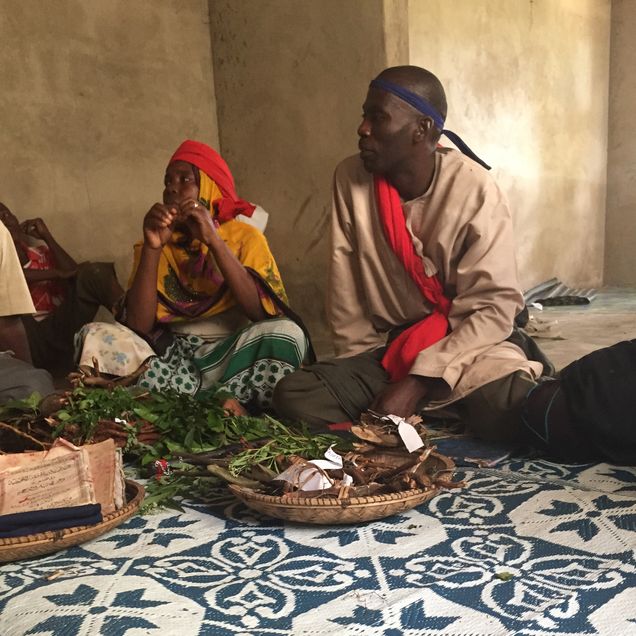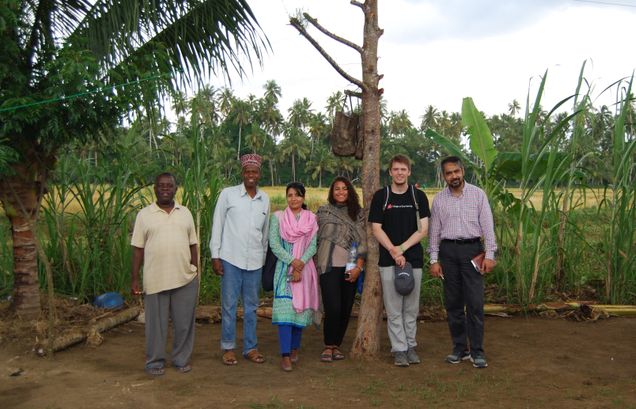Dr. Zaman’s Visit
This weekend Dr. Zaman came to Zanzibar, and we had a productive couple of days with him. On Saturday he met the SUZA medical students for the first time. We spent a few hours updating him on our findings in the field from the past four weeks, and got him up to speed with the biggest issues we noticed in the communities we visited. On Sunday we went to a local witch doctor, who showed us the traditional plants and herbs used for treating different ailments.
witch doctor, who showed us the traditional plants and herbs used for treating different ailments.
Dr. Zaman left us with a lot to think about, particularly about integrating the SUZA team and making this project a true collaborative effort. This is our final week working here in Zanzibar, and we need to ensure that until we return next year things will continue to move forward on both ends. One way we’d like to do this is by creating strong communication lines. We plan on having biweekly or monthly conference calls and maintaining frequent email correspondence. We’d like to find other ways to keep them engaged such as suggesting fieldwork investigations throughout the school year.
 After this weekend we also have a clearer idea of the direction our project might go. We were finally able to get access to the maternity ward at Mnazi Mmoja Hospital and one of the doctors there gave us some valuable feedback about what equipment they lack. Particularly, he pointed out that they do not have any available testing for renal and liver function. Poor function of the liver and kidneys can cause a host of problems both in maternal health and otherwise, so the development of an affordable bedside test would be incredibly valuable. We also determined that a cheap, point of care hemoglobin test would be of great use. All of the hospitals we visited use a device called Hemocue. Though the device is relatively affordable, it could still be made cheaper. And hospitals said they occasionally have shortages of both the reagents and micro-cuvettes needed to use the device.
After this weekend we also have a clearer idea of the direction our project might go. We were finally able to get access to the maternity ward at Mnazi Mmoja Hospital and one of the doctors there gave us some valuable feedback about what equipment they lack. Particularly, he pointed out that they do not have any available testing for renal and liver function. Poor function of the liver and kidneys can cause a host of problems both in maternal health and otherwise, so the development of an affordable bedside test would be incredibly valuable. We also determined that a cheap, point of care hemoglobin test would be of great use. All of the hospitals we visited use a device called Hemocue. Though the device is relatively affordable, it could still be made cheaper. And hospitals said they occasionally have shortages of both the reagents and micro-cuvettes needed to use the device.
Lastly, health education is one of the overarching problems we’ve seen in the communities we visited. Though many women do come to antenatal care visits, doctors have told us the number who come are not representative of the maternal population at large. Many women are unaware of the benefits of seeking antenatal care because it’s not common for women in their community to go. During our hospital visits we’ve only been able to reach women who are aware of the benefits of antenatal care. For this reason, as we move forward in our research we would like to reach these women by conducting fieldwork in more remote communities. We’re also considering options for public service announcements to increase awareness, such as a text blast in cooperation with one of the local phone companies.
We’re all glad Dr. Zaman was able to make the trip out here, and we’re eager to develop these ideas further as we head into our final week of work in Zanzibar.


